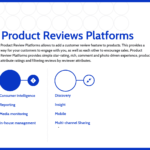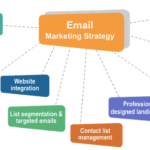# Harnessing AI: The Future of Affiliate Marketing Automation
In the dynamic landscape of digital marketing, affiliate marketing stands out as a significant player, facilitating connections between brands and consumers through established partnerships. As this concept evolves, the advent of artificial intelligence (AI) and automation has introduced transformative changes that are reshaping the affiliate marketing paradigm. This exploration delves into how AI and automation are revolutionizing affiliate marketing, enhancing efficiency, optimizing performance, and ultimately driving revenue growth for affiliates and businesses alike.
## Understanding the Landscape of Affiliate Marketing
Affiliate marketing is defined by its performance-based structure, where affiliates earn commissions by promoting a merchant’s products or services. This model benefits both parties; merchants gain exposure and sales, while affiliates capitalize on their marketing skills. The traditional approach, however, relies heavily on manual processes, making it labor-intensive and often inefficient.
As businesses seek to scale their marketing strategies, standardized methods fall short in a digitally driven market characterized by rapid changes and high consumer expectations. The integration of AI and automation technologies offers a compelling solution to these challenges.
## The Role of AI in Affiliate Marketing
### Data-Driven Insights
AI excels in data analysis, enabling affiliate marketers to derive insights from vast amounts of data generated through various digital channels. By utilizing machine learning algorithms, AI can identify trends, consumer behavior patterns, and engagement metrics more effectively than manual analysis. This data-driven approach allows marketers to tailor their strategies, improving targeting and personalization.
For instance, AI tools can analyze an affiliate’s historical performance metrics, identifying which products are resonating with specific audience demographics. This enables marketers to optimize their promotional efforts, focusing on high-converting campaigns while also recognizing underperformance sooner than traditional methods would allow.
### Enhanced Targeting and Personalization
One of the critical advantages of AI in affiliate marketing is its capacity for hyper-personalization. AI algorithms leverage data from multiple sources—such as social media behavior, website interactions, and purchase history—to craft personalized marketing messages. This capability ensures affiliates can deliver relevant content that resonates with their audience, thereby increasing conversion rates.
In essence, AI allows affiliates to segment their audiences more effectively, providing tailored product recommendations that meet individual preferences. Such precision in targeting not only drives sales but also fosters stronger relationships between consumers and brands.
### Predictive Analysis
Predictive analytics, powered by AI, is transforming how affiliates approach their campaigns. By forecasting future consumer behaviors based on historical data, affiliates can anticipate market trends and adjust their strategies proactively. This is particularly beneficial in seasonal industries where consumer preferences shift dramatically, allowing marketers to align their promotional efforts with anticipated demand peaks.
For example, an affiliate promoting fitness products could use predictive analysis to determine when specific products are likely to gain popularity, such as gym equipment during New Year’s resolutions or fitness nutrition supplements during summer. By timing their marketing efforts accurately, affiliates can maximize their revenue potential.
## Automation: Streamlining Processes in Affiliate Marketing
### Efficient Management of Campaigns
Automation technology is instrumental in managing affiliate marketing campaigns more efficiently. Tools exist that can automate numerous repetitive tasks, from content distribution to performance tracking. By automating these processes, marketers can dedicate more time to strategic planning and creative efforts rather than getting bogged down by administrative duties.
For instance, automating email marketing campaigns allows affiliates to maintain regular contact with their audience, delivering relevant content and promotions without the need for constant manual intervention. Such efficiency not only saves time but also ensures that communications are timely and consistent.
### Performance Tracking and Reporting
With the sheer volume of data generated in affiliate marketing, manual performance tracking is unsustainable. Automation tools provide real-time reporting on key performance indicators (KPIs), allowing marketers to gauge the success of their campaigns instantaneously. This capability facilitates timely decisions based on performance data, enabling affiliates to make adjustments as needed.
In addition, automated reporting tools cut down on the likelihood of human error. Accurate data tracking is vital in evaluating which marketing strategies yield the best results, ensuring affiliates invest their resources wisely.
### Pay-for-Performance Models
One of the most significant changes automation brings to affiliate marketing is the facilitation of pay-for-performance models. Automated systems can handle the intricate calculations needed to accurately track conversions and commissions, ensuring affiliates are rewarded promptly and fairly. This builds trust among affiliates, motivating them to invest further in their marketing efforts.
Moreover, smart contracts based on blockchain technology are emerging, offering a way to automate payments securely. This further enhances transparency and efficiency in affiliate marketing relationships, ultimately resulting in a more robust ecosystem.
## The Synergy of AI and Automation
The real power of AI and automation lies in their synergy. When combined, they create a formidable force that can revolutionize affiliate marketing operations. By leveraging AI’s analytical capabilities alongside the efficiency of automation, affiliates can achieve unprecedented levels of optimization.
### Optimizing Ad Spend
AI-driven analytics can optimize ad spend in real-time by evaluating which campaigns are performing well versus those that are not. This allows for a reallocation of resources to the most effective channels, maximizing return on investment (ROI). Automation takes this a step further by implementing these changes automatically, ensuring that budgets are accurately spent without the need for constant oversight.
For instance, if an affiliate’s social media advertisements are underperforming compared to a particular email marketing campaign, AI can recognize this trend and automation can redirect budget allocations accordingly within seconds.
### Seamless Integration of Channels
Today’s marketing landscape demands a multi-channel approach. AI and automation work together to integrate different marketing channels, ensuring coherent messaging across platforms. Affiliates can use AI to analyze consumer interactions across channels and guide automation tools to synchronize their marketing efforts.
This seamless integration minimizes the risk of conflicting messages and enhances overall brand cohesion, resulting in a smoother experience for consumers. By presenting a unified front, affiliates can foster deeper brand loyalty and engagement.
## Challenges and Considerations
While AI and automation offer numerous advantages, they also present challenges. The implementation of these technologies requires an initial investment and a willingness to adapt to new systems. Marketers must ensure they have the necessary skills to utilize these tools effectively and overcome potential resistance from stakeholders accustomed to traditional methods.
Moreover, as AI grows more prevalent, ethical considerations become critical. The use of personal data must be handled transparently, adhering to privacy regulations and consumer expectations. Striking the right balance between leveraging data for marketing purposes and respecting consumer privacy will be pivotal in maintaining trust in affiliate marketing relationships.
## The Future of Affiliate Marketing with AI and Automation
As the convergence of AI, automation, and affiliate marketing continues to evolve, the implications are profound. The future will likely see even further advancements in technology, enhancing the capabilities of affiliates and merchants alike. The focus will shift from merely engaging consumers to creating immersive, personalized experiences that seamlessly guide them through their purchasing journeys.
### AI-Powered Creatives
The next frontier in affiliate marketing may well be the use of AI to generate creative content. From writing promotional copy to designing visuals, AI tools are already being developed to enhance creativity and efficiency. Affiliates may soon harness these tools to create engaging marketing materials quickly and cost-effectively.
### Voice and Visual Search
As voice and visual search technologies mature, affiliate marketers will need to adapt to new consumer behaviors. AI will play a vital role in optimizing content for these emerging search modes, ensuring that affiliates remain at the forefront of customer interactions. Adapting marketing strategies to utilize voice search optimization could enhance reach and engagement significantly.
### Continuous Improvement Through Machine Learning
Affiliate marketing will benefit from ongoing advancements in machine learning, where systems become smarter over time from continuous interaction with data. Future AI-driven tools will likely offer even more refined analytics, predictive capabilities, and automation, further enhancing affiliates’ ability to target the right audiences and optimize their campaigns.
## Conclusion
The integration of AI and automation into affiliate marketing signals a paradigm shift that can redefine how businesses and affiliates operate. By harnessing these technologies, marketers can achieve higher efficiency, better performance analytics, and deeper customer engagement. As the landscape continues to evolve, those who embrace these changes will be positioned to lead the next generation of affiliate marketing.
The journey ahead promises to be filled with innovation, and the ability to adapt to and leverage AI and automation will ultimately determine success in the affiliate marketing arena. As these technologies mature, they will be not just tools of convenience but fundamental components of a thriving affiliate marketing ecosystem. Embracing this future will empower affiliates to maximize their potential and drive transformative growth in an increasingly competitive market.









